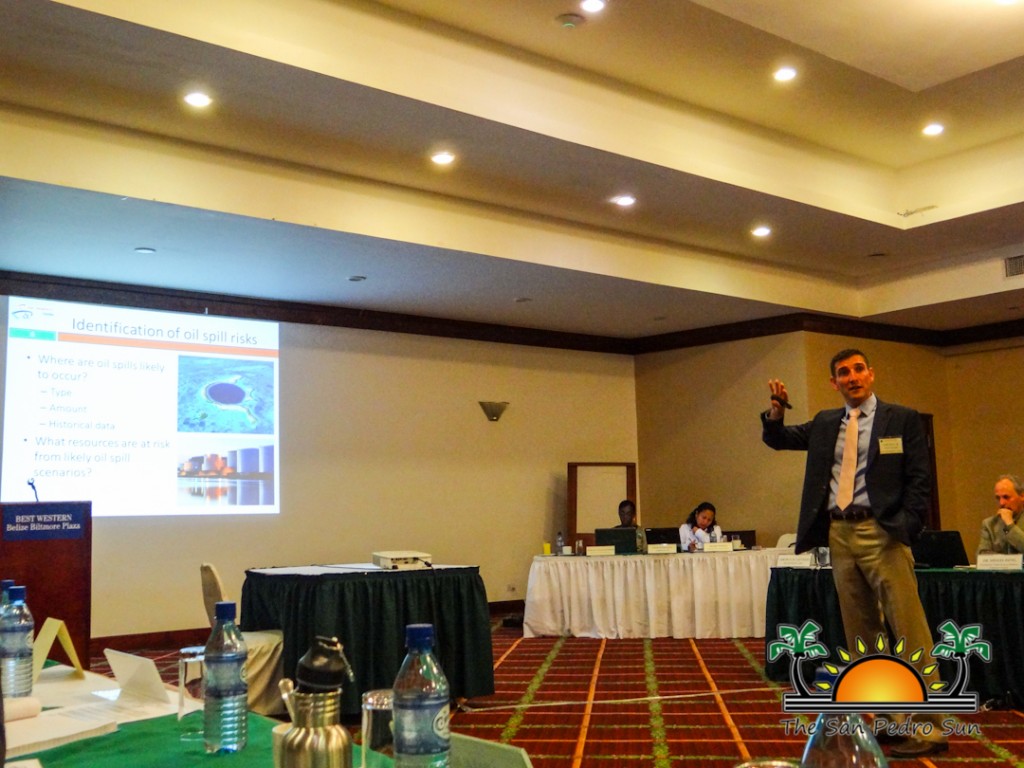While the Belizean coast is not dotted with oil rigs, there are still possibilities of an offshore oil spill. As such the Department of Environment (DOE) held a one day oil pollution, preparedness, response and cooperation sensitization workshop for Non- Governmental Organizations (NGO’s) and the media corps. The workshop was held at the Biltmore Plaza in Belize City on Wednesday, April 15th and saw the participation of more than 25 invited guests from across the country. DOE partnered with the International Maritime Organization (IMO), the United Nations Environmental Programme- Regional Coordinating Unite for the Caribbean Environment Program (UNEP CAR/RCU) and the Regional Activity Centre/ Regional Pollution Emergency Information and Training Center for the Wider Caribbean (RAC-REM-REMPEITIC Caribe) to bring in three oil spill specialists to officiate the workshop.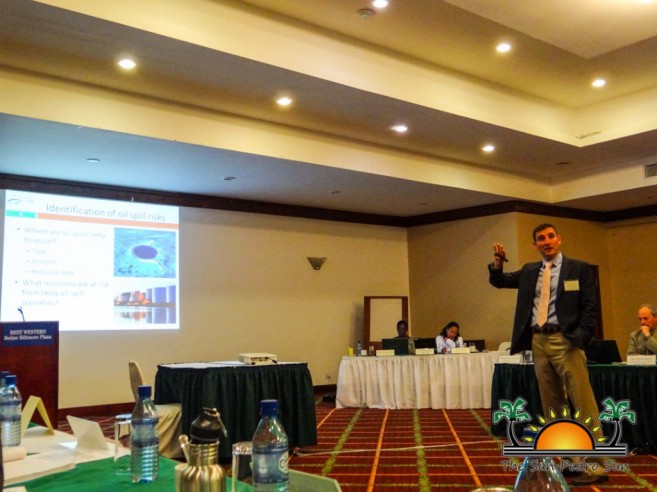
The issue of offshore drilling in Belizean waters has been at the fore-front of concern for environmentalists as well as citizens and tourism stakeholders. The main concern is that offshore exploration and drilling can lead to oil spills that can destroy our delicate marine ecosystem. While many are under the impression that Belize is not at risk of an oil spill, since there is no offshore oil exploration, specialists say that there is still a high threat for oil spills in Belize and it is best to be prepared.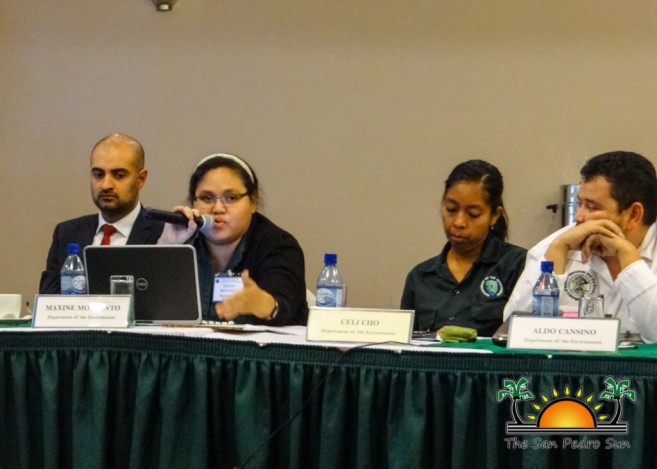
The workshop focused on providing necessary information to NGO’s and the media on how to cope with an oil spill. The key speakers included IMO Consultant and RAC-REM-REMPEITIC Caribe Representative Commander Paul Lattanzi, Technical Advisor for The International Tanker Owners Pollution Federation Limited (ITOPF) (United Kingdom) Miguel Patel, and Principal and Senior Marine Scientist Polaris Applied Sciences Inc. (USA) Doctor Elliott Taylor. Each speaker contributed knowledge on the basic understanding of the science of oil and oil spills, oil spill response techniques, and regimes for oil spill response.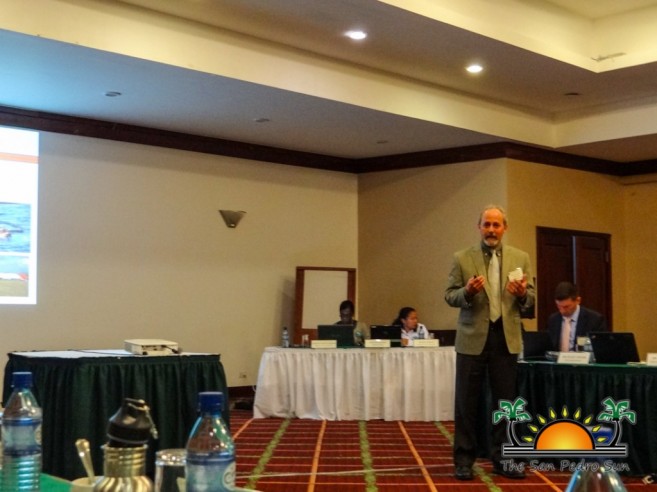
According to Lattanzi, Belize is currently at a high risk for oil spills from tankers transporting oil products both within the country and outside. “Just because there is no extraction platform here doesn’t mean that the country is not at risk for a serious oil spill. Each day there are activities going on that can lead to oil spills. Large tankers are constantly passing by Belize, transporting tons of oil throughout the region. If at any point that tanker would be compromised and its contents start spilling into the sea, Belize would need to be prepared to protect its assets. You need to be doing everything possible so that Belize is prepared for that risk,” said Lattanzi. He went on to say that as it is, Belize must improve in its oil response initiative. “I think there is definitely room for improvement and the DOE is leading that effort to get an oil spill plan in place and bring the stakeholders to the table, so that everyone who has a part to play makes sure that Belize is prepared. You must identify the essential areas to be protected and that will be the cost of protecting such areas. But most importantly, the whole country needs to be prepared because oil spills have an effect on everyone, not only those in the immediate area,” said Lattanzi.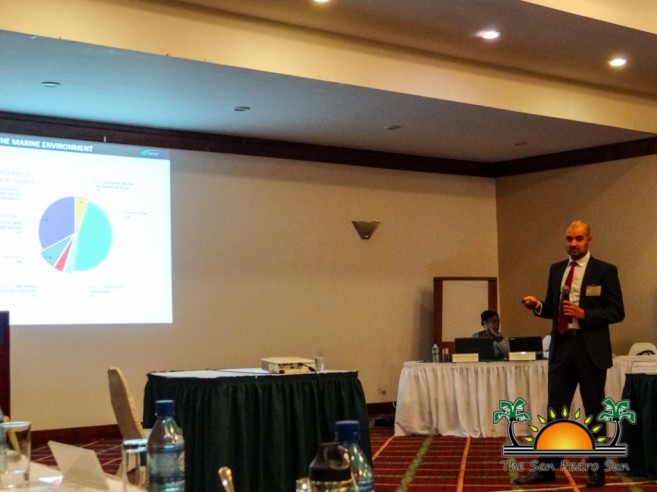
Patel identified the different types of oil composition and what effect it would have on different environments. He stated that mangrove ecosystems and coral reefs are among the most sensitize ecosystems that can be affected by oil spills. “You must understand that once an oil spill occurs, the response time is key in ensuring the least damaging effect. You first need to identify what type of oil, whether it is a light or heavy oil (persistent and non-persistent oils). You then contain the spill as quickly as possible while at the same time cutting of the source of the spill. After containment you work on removing the oil. There are several factors that will determine the magnitude of damage caused by oil spills, but the quicker the response, the more you can prevent damage,” said Patel.
In order to effectively respond to an oil spill, Taylor stated that Belize needs to create a plan of action. “Belize needs to work on simulations and ask themselves the question ‘What is our plan for an oil spill?’. Part of this plan of action is to issue our responsibilities to relevant agencies, we need to bring all people that will play a role at the time of an actual incident. Everyone that is part of that group needs to know each other’s strengths, expectations of their roles and responsibilities and how each different organization can contribute effectively to the response. I think there is a lot of work to be done and the country knows that. One has to look at the broader international frame work to see how Belize can situate itself within that to best know how Belize can best prepare itself for something that we all hope never, ever, happens. In the event of an oil pollution incident, prompt and effective action is essential in order to minimize the damage which may result from such an incident,” said Taylor.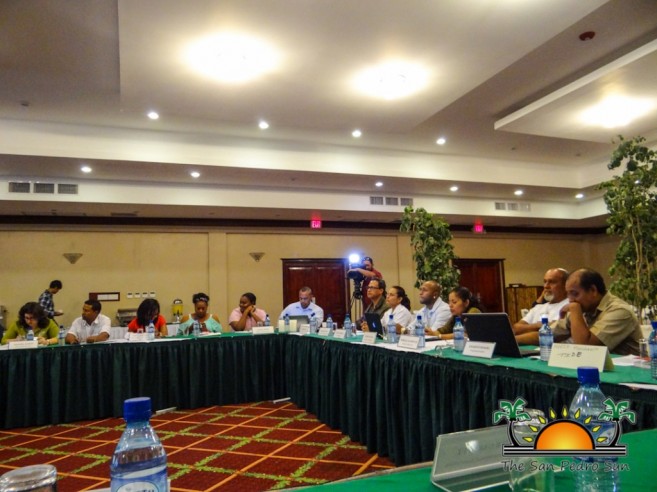
The workshop provided essential insight on oil spills, but much more still needs to be done. DOE is working towards the development of a comprehensive national oil spill contingency plan and will be requiring the assistance of the NGO’s. “You can consider this as the first step towards the national oil spill contingency plan. Right now we know what the command structure is from the draft structure. We have some equipment on site that can be used in the event of an oil spill, but there is still more equipment that needs to be obtained. We are hoping to update and strengthen our ability to cope with a possible oil spill. When we finish the draft document and it gets approved, we will have a simulation exercise to ensure we are all prepared and everyone knows what their role is. We all love our country and know that our natural ecosystem is our biggest asset, that’s why we have to move forward and prepare for the worst case scenario. DOE is prepared to work along with all parties that can assist us,” said Senior Environmental Officer Maxine Monsanto.
It was also highlighted that communication between the media and the relevant authorities in an oil spill response effort is essential. The public must be kept informed on all phases of an oil spill to ensure their safety and to take preventative measures to reduce further effects.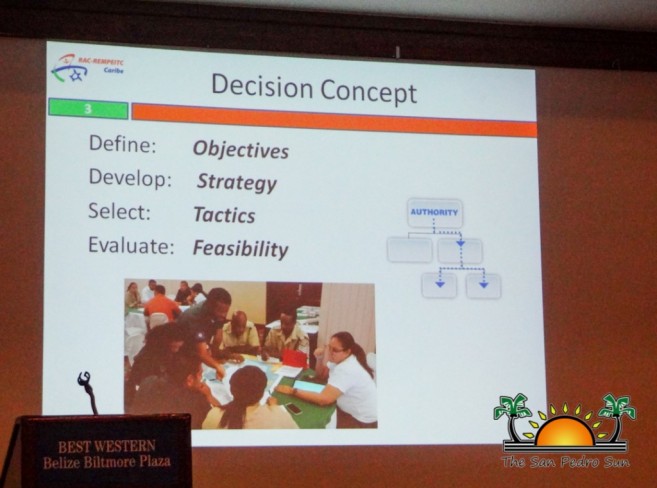
DOE will continue to work with both international and national agencies to strengthen the country preparedness for oil spills.
To view the full presentation of the oil pollution, preparedness, response and cooperation sensitization workshop, visit
www.dropbox.com/s/bomr02s3s9q8qfe/Oil%20Spill%20Response%20Workshop%2015%20April%202015.pdf?oref=e#

